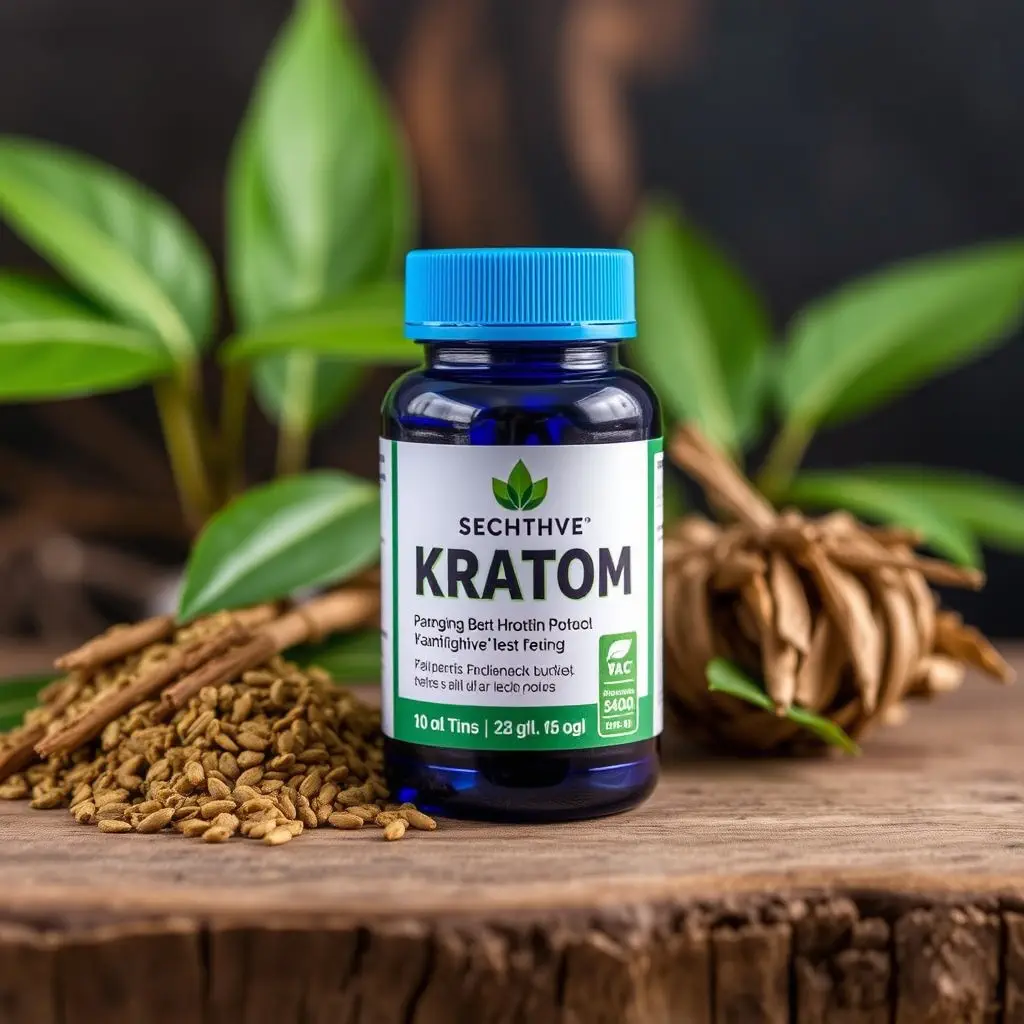Maine's sports community is examining the potential impact of kratom, a botanical supplement from Mitragyna speciosa leaves, on athletic performance and recovery. While some athletes are interested in its stimulant and sedative properties that could enhance energy management and aid in recovery, its status as a controlled substance in Maine adds complexity to its use. The interest in kratom as a natural performance enhancer is tempered by the need for caution due to inconsistent alkaloid levels, the lack of definitive scientific evidence on its efficacy, and the importance of navigating both health effects and legal compliance. Healthcare professionals specializing in sports nutrition advise athletes to exercise due diligence when considering kratom, advocating for informed decision-making based on Maine's evolving legal landscape and the substance's influence on athletic performance and recovery processes. Athletes should consult with qualified professionals before integrating kratom into their training, keeping in mind that its legal status within sports nutrition is subject to change and requires constant monitoring. The ethical implications of using kratom, including fairness and player safety, must be considered alongside the legal considerations, with governing bodies tasked with overseeing its use to align with sportsmanship values and ensure athlete well-being. As Maine's regulatory stance on kratom evolves, all stakeholders involved in sports nutrition must stay informed about both the ethical and legal aspects surrounding its use.
Exploring the nuanced relationship between sports nutrition and kratom use, this article sheds light on how athletes in Maine can leverage this unique herbal supplement to enhance their performance. We delve into the scientific rationale behind its potential benefits, navigate the legal framework governing its use, and address the ethical implications for sports enthusiasts in the Pine Tree State. Join us as we unravel the intricacies of incorporating kratom into a balanced sports nutrition regimen while adhering to Maine’s regulations.
- Understanding the Intersection of Sports Nutrition and Kratom Use in Maine
- Optimizing Athletic Performance with Kratom: A Guide for Maine Athletes
- The Legal Landscape and Ethical Considerations of Incorporating Kratom into Sports Nutrition in Maine
Understanding the Intersection of Sports Nutrition and Kratom Use in Maine

In Maine, athletes and fitness enthusiasts are increasingly exploring the intersection of sports nutrition and kratom use, a topic that warrants careful examination due to its implications on performance, well-being, and compliance with regulatory frameworks. Kratom, derived from the leaves of Mitragyna speciosa, is known for its stimulant and sedative effects, which can potentially influence energy levels and recovery processes during rigorous training regimens. In the context of sports nutrition, Maine’s athletes are seeking ways to enhance their performance naturally, and kratom has emerged as a subject of interest. However, it’s crucial for users to understand the legal status and potential health effects associated with its consumption, as kratom is a controlled substance in Maine. The balance between optimizing athletic performance and adhering to sports regulations is a delicate one, and any integration of kratom into a sports nutrition plan must be approached with caution and informed by credible research and expert guidance.
The use of kratom in Maine’s sports community necessitates a multifaceted approach that considers the nutritional needs of athletes alongside the unique pharmacological properties of kratom. While some advocates claim that kratom can support endurance, reduce fatigue, and aid in muscle recovery, it’s important to note the lack of definitive scientific consensus on these claims. Moreover, the variable alkaloid content in kratom products can lead to inconsistent effects, making it a less reliable addition to a sports nutrition strategy. Athletes interested in incorporating kratom into their regimen should prioritize informed decision-making, potentially consulting with healthcare professionals and nutritionists who are well-versed in the nuances of both sports nutrition and kratom’s role within it. The state of Maine’s regulatory environment also plays a significant role in shaping how kratom can be legally used in conjunction with athletic training and competition, further emphasizing the need for due diligence and awareness among athletes.
Optimizing Athletic Performance with Kratom: A Guide for Maine Athletes

For Maine athletes seeking to enhance their athletic performance, incorporating kratom into a sports nutrition plan may offer benefits. Kratom, a plant-based supplement derived from the leaves of Mitragyna speciosa, has gained attention for its potential ergogenic properties. When consumed responsibly, kratom can contribute to heightened focus and stamina, which are critical components in training and competition for athletes across various disciplines. The alkaloids found within kratom leaves, such as 7-hydroxymitragynine and mitragynine, interact with the body’s opioid receptors, potentially reducing pain perception and easing muscle soreness post-exercise. This can be particularly advantageous for endurance and strength athletes in Maine who engage in rigorous training regimens.
However, it is crucial to approach kratom with caution, as its effects can vary significantly among individuals. Maine athletes should consult with healthcare professionals or sports nutritionists before integrating kratom into their regimen. Proper dosage and the right strain selection are key factors in achieving performance benefits without risking adverse side effects. Additionally, due to the legal status of kratom being subject to change and varying by location within Maine, athletes must stay informed about the regulations governing its use. By doing so, they can make an educated decision that aligns with their fitness goals and adheres to local laws, ensuring a safe and legally compliant approach to optimizing athletic performance through kratom supplementation.
The Legal Landscape and Ethical Considerations of Incorporating Kratom into Sports Nutrition in Maine

In Maine, the legal landscape surrounding the use of kratom in sports nutrition is nuanced and subject to ongoing regulation. As of recent updates, kratom remains a legally available substance, with the state’s legislature having not explicitly banned it at the time of writing. This has led to a situation where athletes and coaches in Maine can explore the potential benefits of kratom as a natural performance enhancer, albeit with caution due to its regulatory status and limited research on long-term effects. The lack of explicit legislation means that the use of kratom must be navigated carefully, with an understanding that state laws can evolve rapidly. It’s crucial for individuals involved in sports nutrition to stay informed about any changes in legislation that could affect the legality of incorporating kratom into dietary regimens.
From an ethical standpoint, the use of kratom in sports nutrition raises questions about fairness and player safety. The substance’s potential impact on performance, along with its psychoactive properties, necessitates a rigorous discussion within the athletic community. Ethical considerations include ensuring that athletes who choose to use kratom do so informed by scientific evidence and within the bounds of sportsmanship. The ethical implications extend to the responsibility of governing bodies to monitor such substances for compliance with performance enhancement guidelines, as well as to protect the health and welfare of athletes. As Maine continues to evaluate its stance on kratom, it is imperative that both practitioners and athletes remain aware of the ethical responsibilities and legal constraints associated with its use in sports nutrition.
In recent times, the intersection of sports nutrition and kratom use has emerged as a topic of interest, particularly within the active community in Maine. This article has delved into the multifaceted relationship between these two domains, offering insights on how athletes might harness the potential benefits of kratom to enhance their performance while navigating the legal and ethical considerations inherent to its use. As Mainers continue to explore innovative approaches to sports nutrition, it is imperative to approach such practices with a balanced perspective, considering both the promising effects and the regulatory framework that governs kratom consumption. With the information presented, athletes in Maine are now better equipped to make informed decisions regarding the integration of kratom into their nutritional regimens, ensuring they remain competitive while adhering to the highest standards of ethical play.






